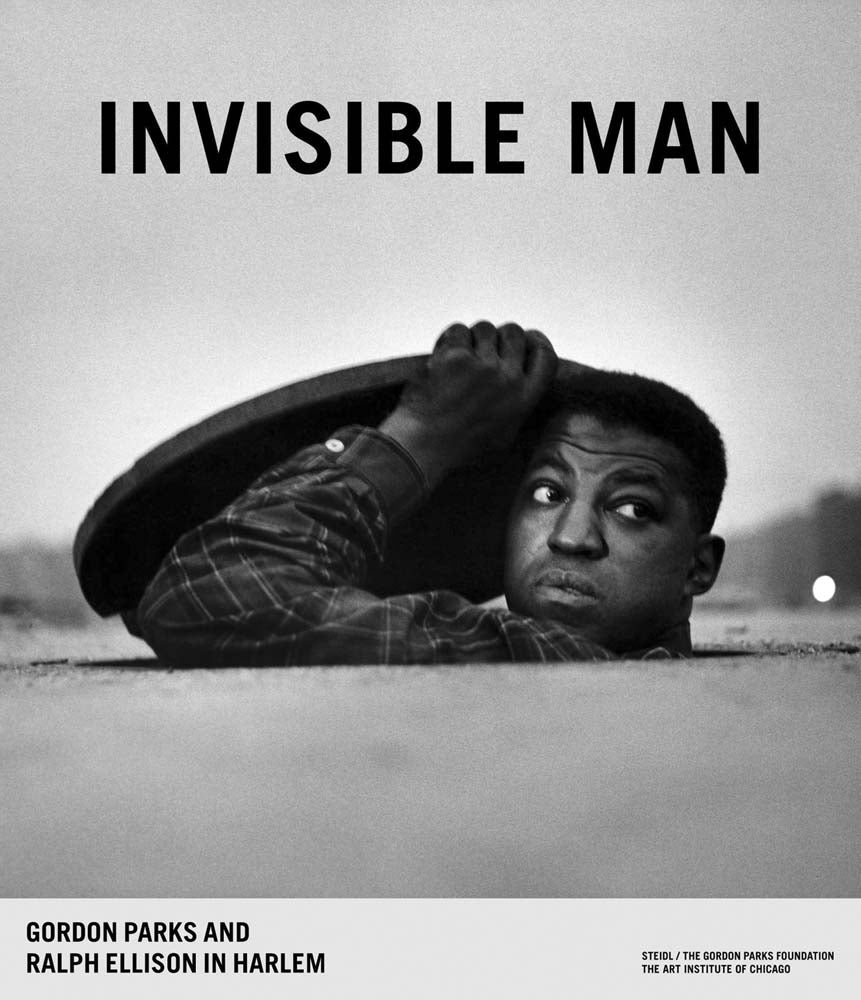
Invisible Man: Gordon Parks and Ralph Ellison in Harlem
Regular price
$45.00
Sale
It is relatively unknown that the photographer Gordon Parks was close friends with Ralph Ellison, author of the acclaimed 1952 novel Invisible Man. Even less known is the fact that their common vision of racial injustices, coupled with a shared belief in the communicative power of photography, inspired collaboration on two important projects, in 1948 and 1952. Capitalizing on the growing popularity of the picture press, Parks and Ellison first joined forces on an essay titled "Harlem Is Nowhere" for ‘48: The Magazine of the Year.
Conceived while Ellison was already three years into writing Invisible Man, this illustrated essay was centered on the Lafargue Clinic, the first non-segregated psychiatric clinic in New York City, as a case study for the social and economic conditions in Harlem. He chose Parks to create the accompanying photographs, and during the winter of 1948, the two roamed the streets of Harlem, with Parks photographing under the guidance of Ellison’s writing. In 1952 the two collaborated again on "A Man Becomes Invisible" for the August 25 issue of Life, which promoted Ellison’s newly released novel. This is the first publication on Parks’ and Ellison’s two collaborations, one of which was lost, while the other was published only in reduced form.
Gordon Parks was born in Fort Scott, Kansas, in 1912. In addition to his storied tenures photographing for the Farm Security Administration (1941–45) and Life (1948–72), Parks found success as a film director, introducing Blaxploitation through his film Shaft (1971). Parks died in 2006.
Ralph Ellison was born in Oklahoma City in 1913. He enrolled at Booker T. Washington’s Tuskegee Institute in Macon County, Alabama, as a music major and later turned to writing essays and short stories for publications such as New Masses, The Negro Quarterly, The New Republic and Saturday Review. Invisible Man won the National Book Award in 1953. Ellison published two collections of essays: Shadow and Act (1964) and Going to the Territory (1986). He died in 1994.
Conceived while Ellison was already three years into writing Invisible Man, this illustrated essay was centered on the Lafargue Clinic, the first non-segregated psychiatric clinic in New York City, as a case study for the social and economic conditions in Harlem. He chose Parks to create the accompanying photographs, and during the winter of 1948, the two roamed the streets of Harlem, with Parks photographing under the guidance of Ellison’s writing. In 1952 the two collaborated again on "A Man Becomes Invisible" for the August 25 issue of Life, which promoted Ellison’s newly released novel. This is the first publication on Parks’ and Ellison’s two collaborations, one of which was lost, while the other was published only in reduced form.
Gordon Parks was born in Fort Scott, Kansas, in 1912. In addition to his storied tenures photographing for the Farm Security Administration (1941–45) and Life (1948–72), Parks found success as a film director, introducing Blaxploitation through his film Shaft (1971). Parks died in 2006.
Ralph Ellison was born in Oklahoma City in 1913. He enrolled at Booker T. Washington’s Tuskegee Institute in Macon County, Alabama, as a music major and later turned to writing essays and short stories for publications such as New Masses, The Negro Quarterly, The New Republic and Saturday Review. Invisible Man won the National Book Award in 1953. Ellison published two collections of essays: Shadow and Act (1964) and Going to the Territory (1986). He died in 1994.
